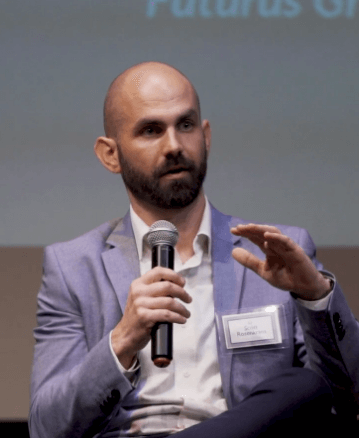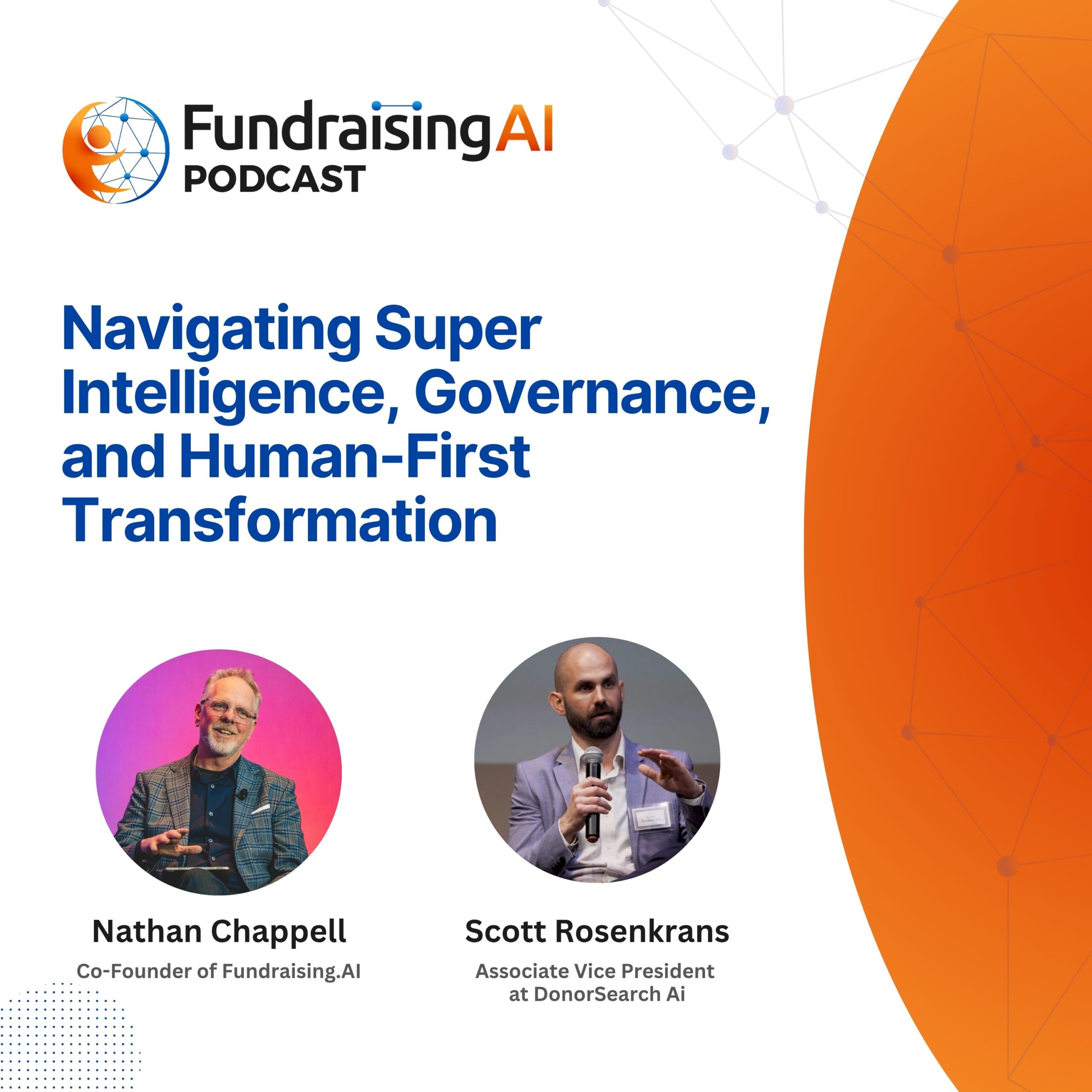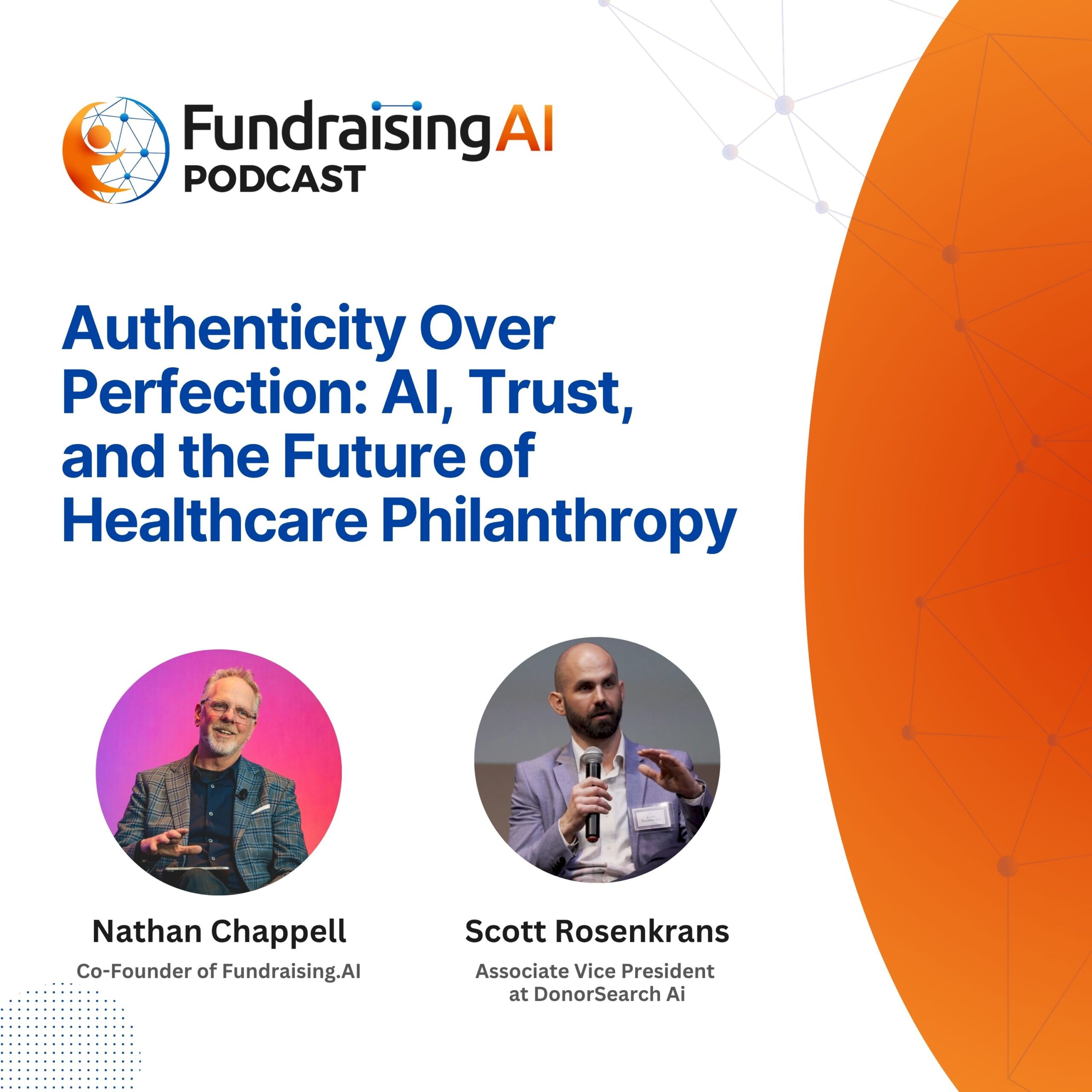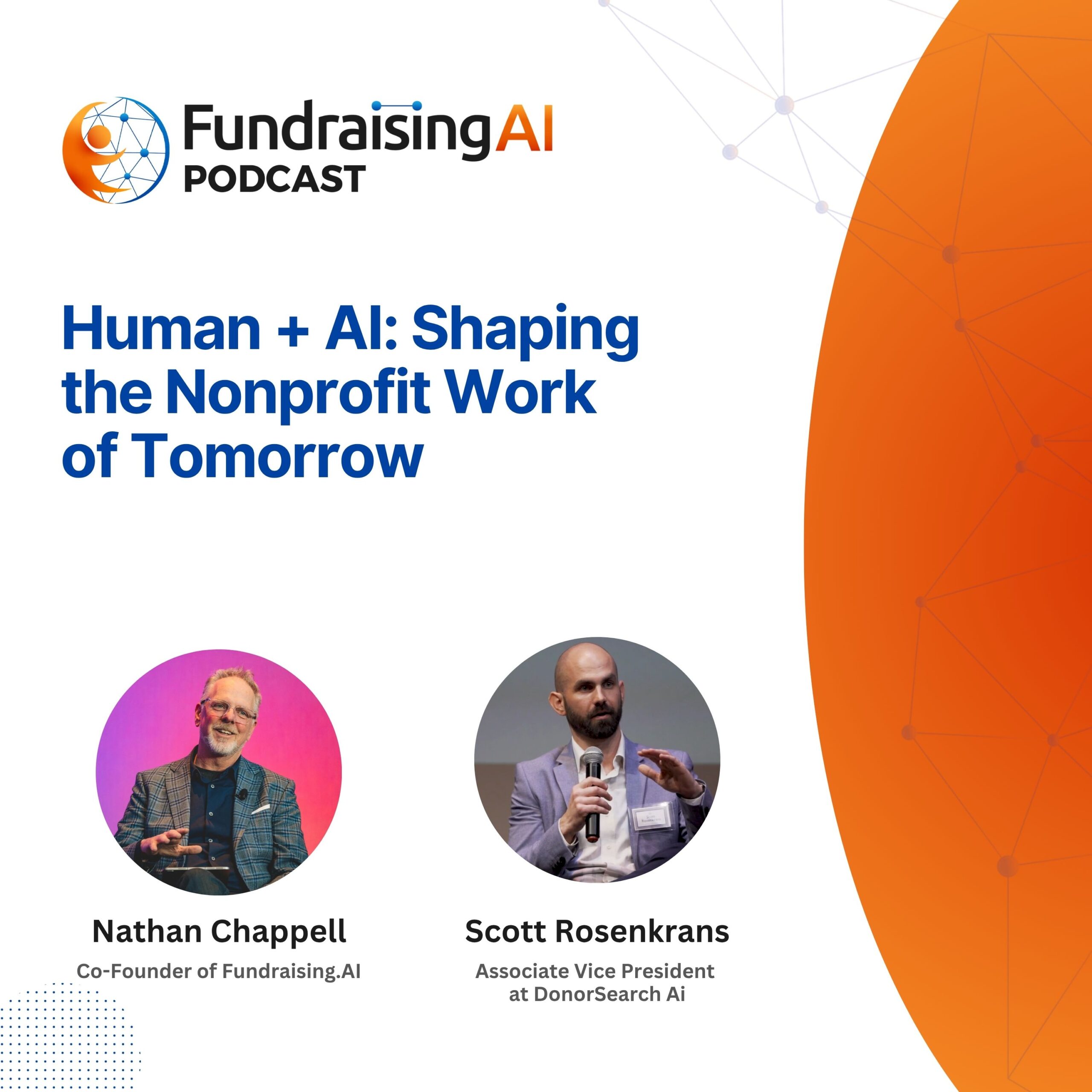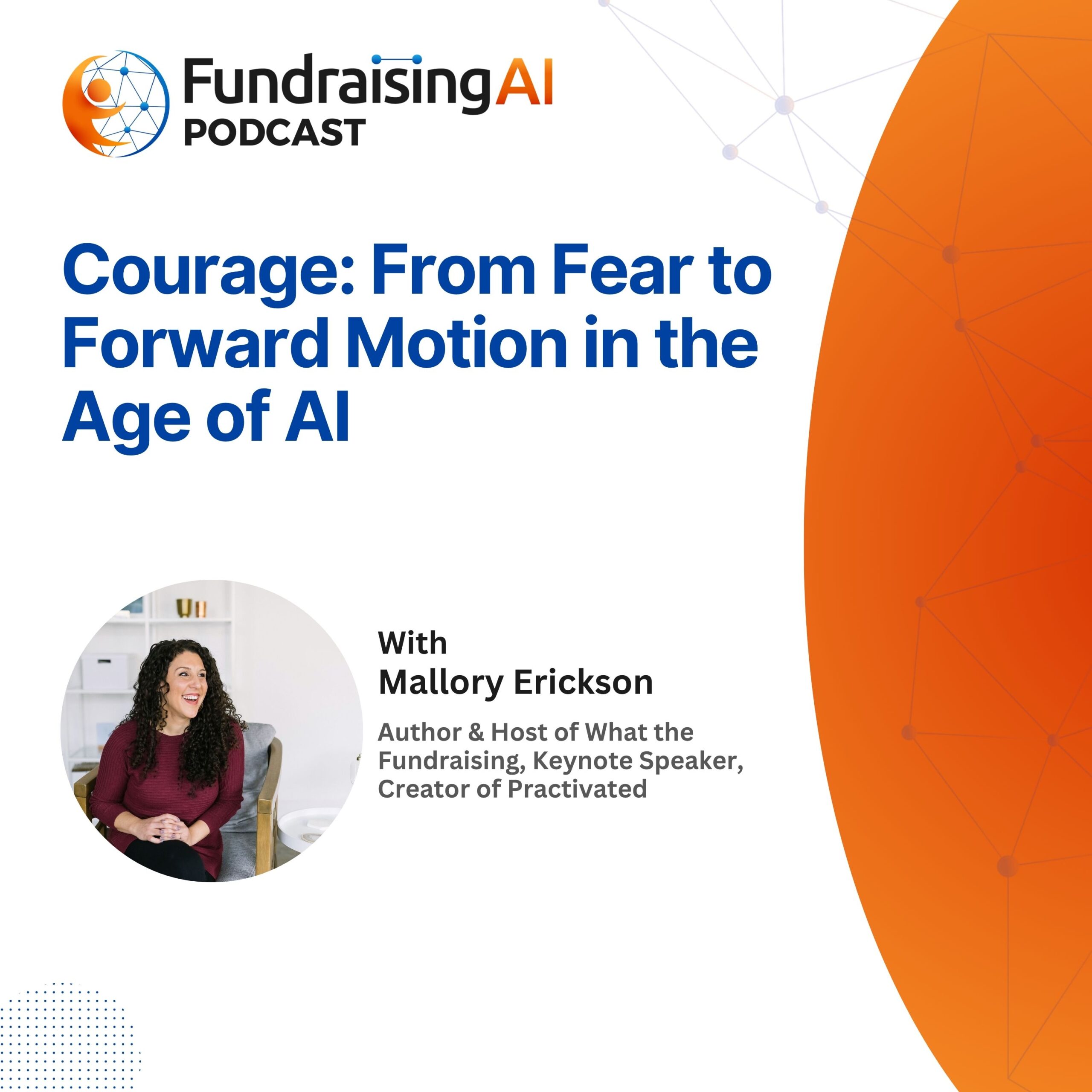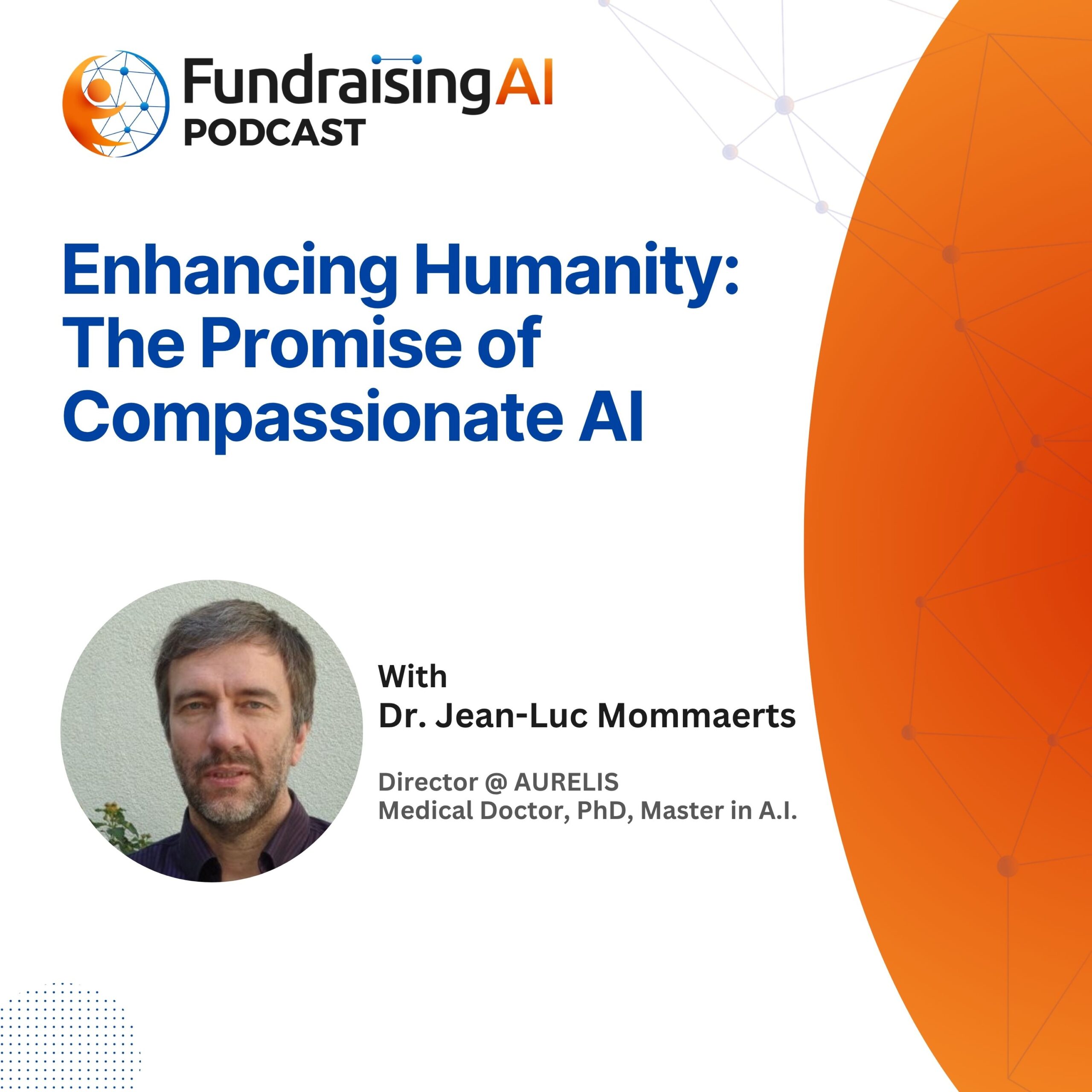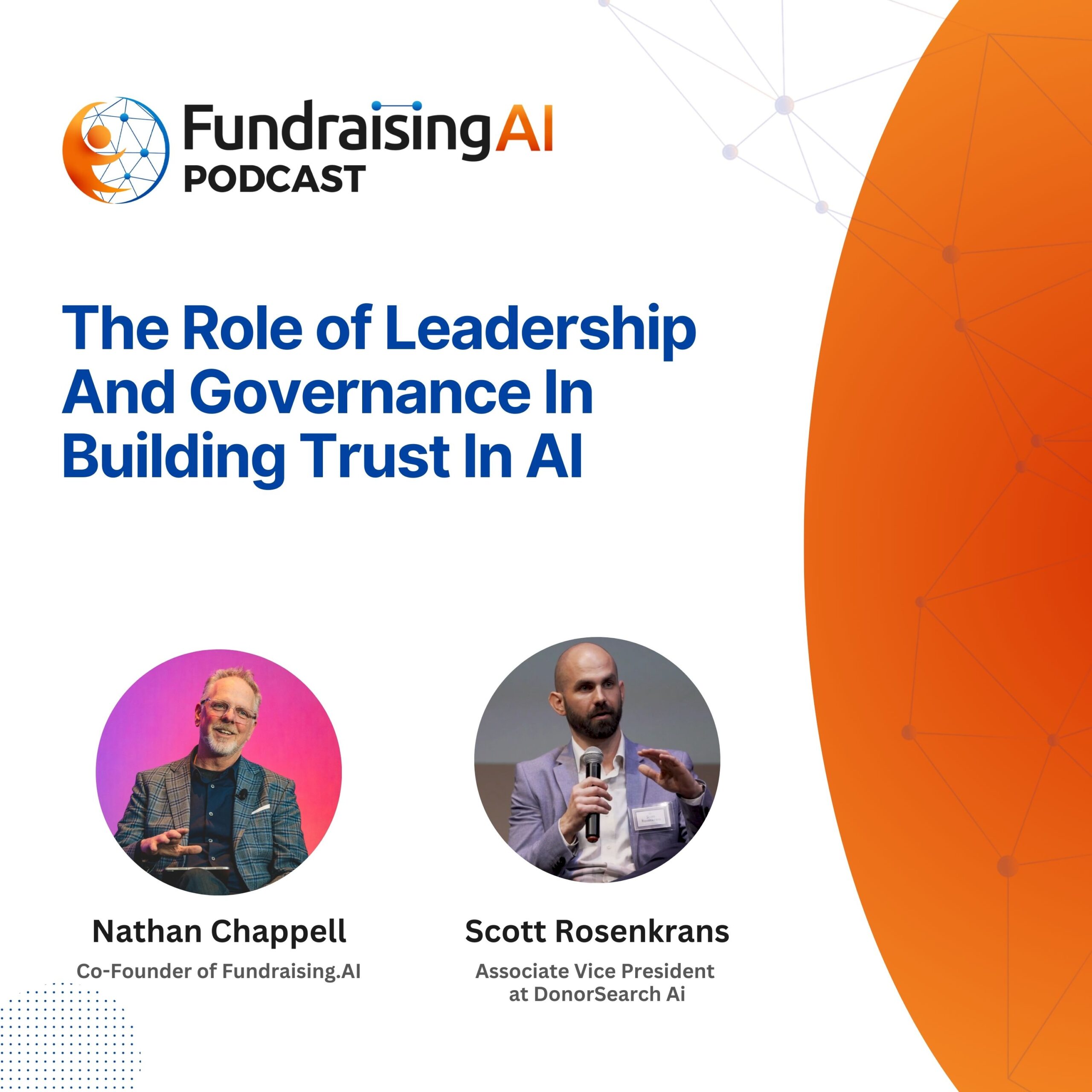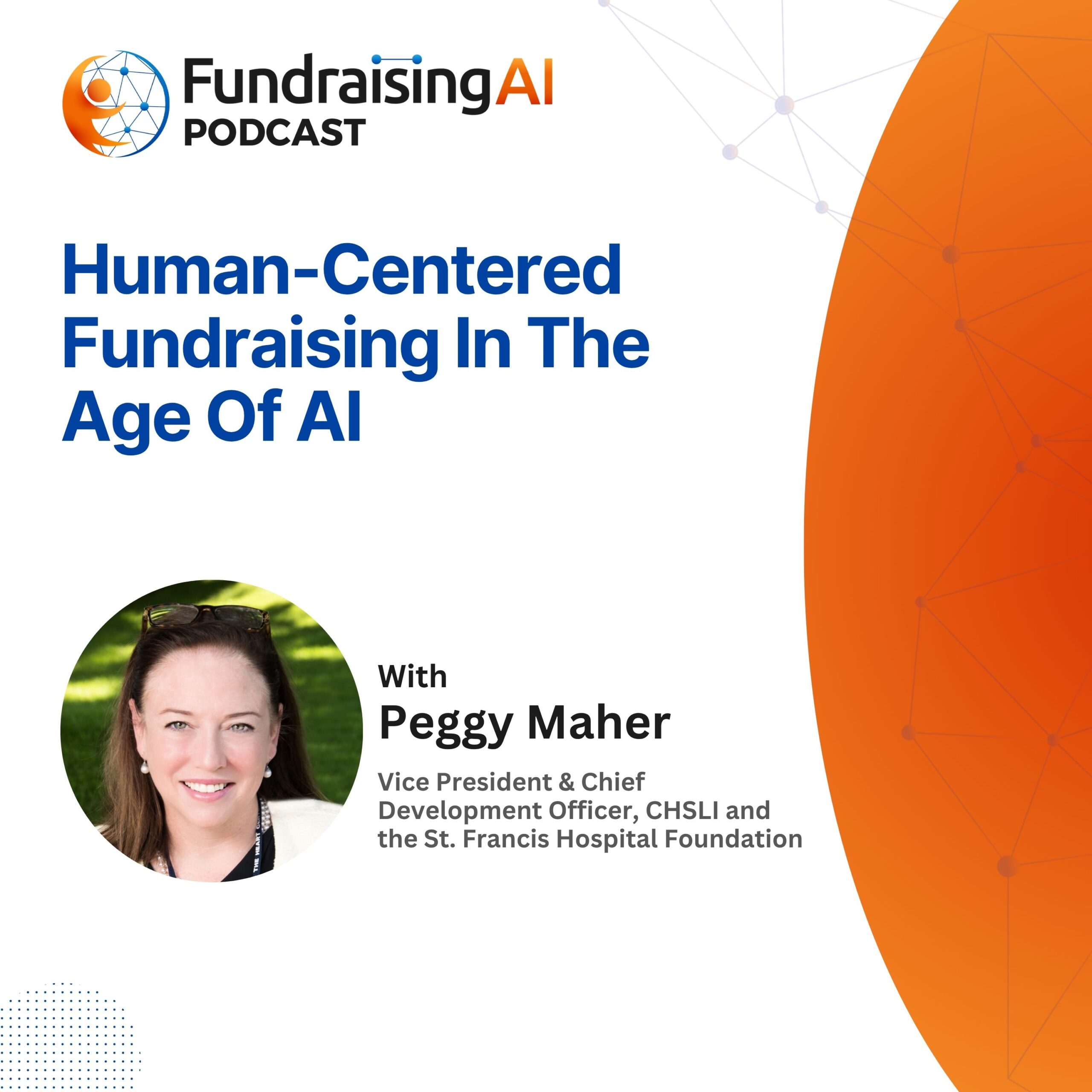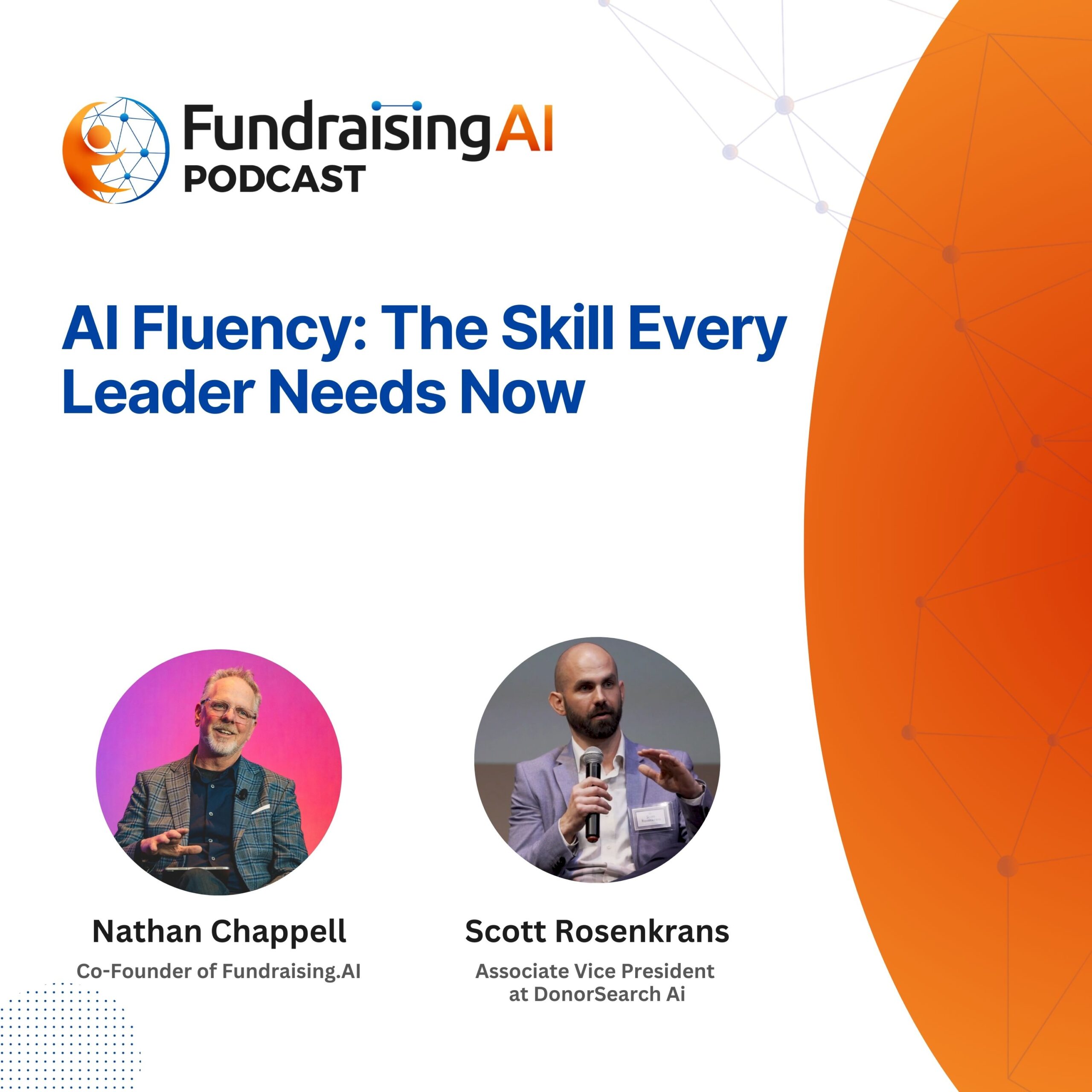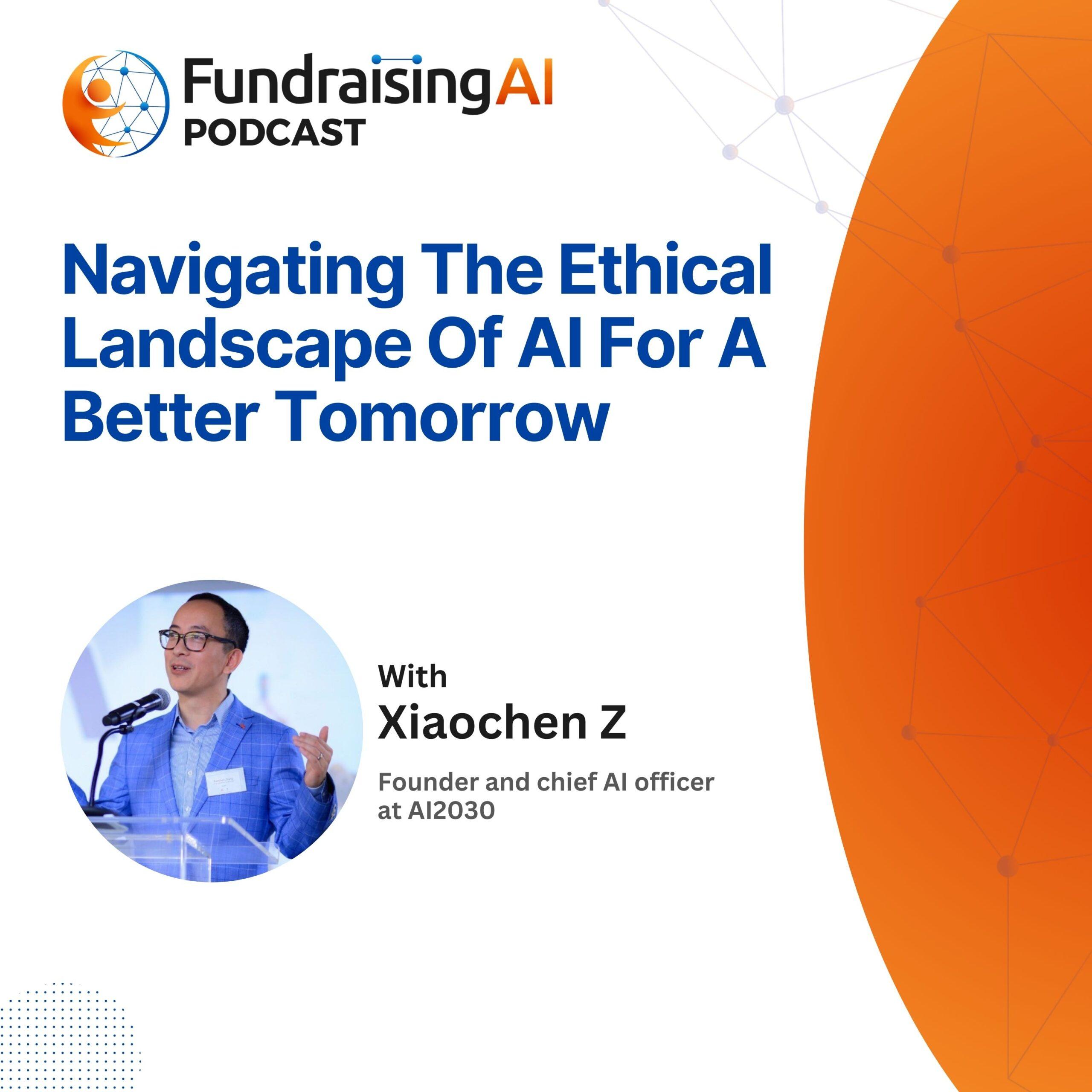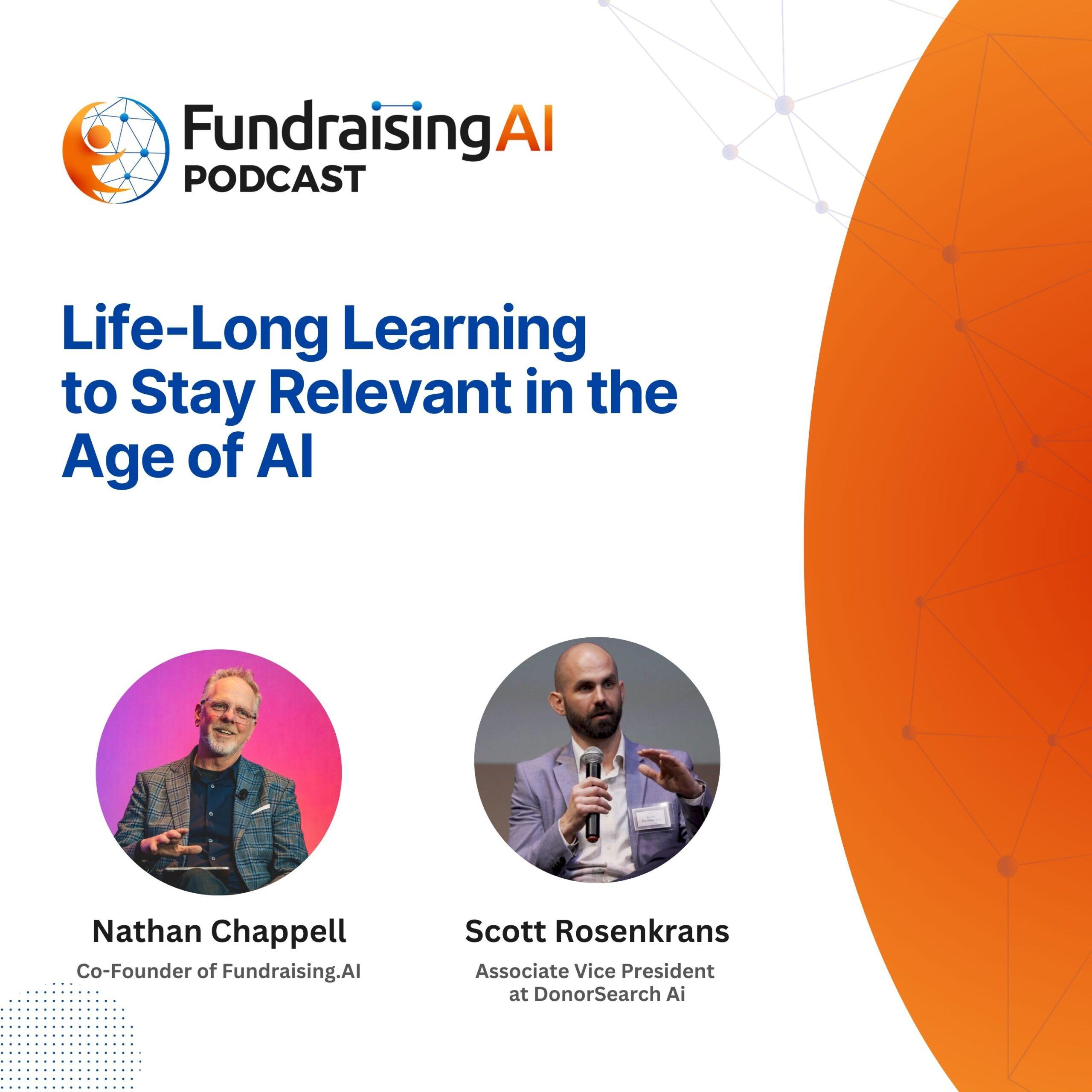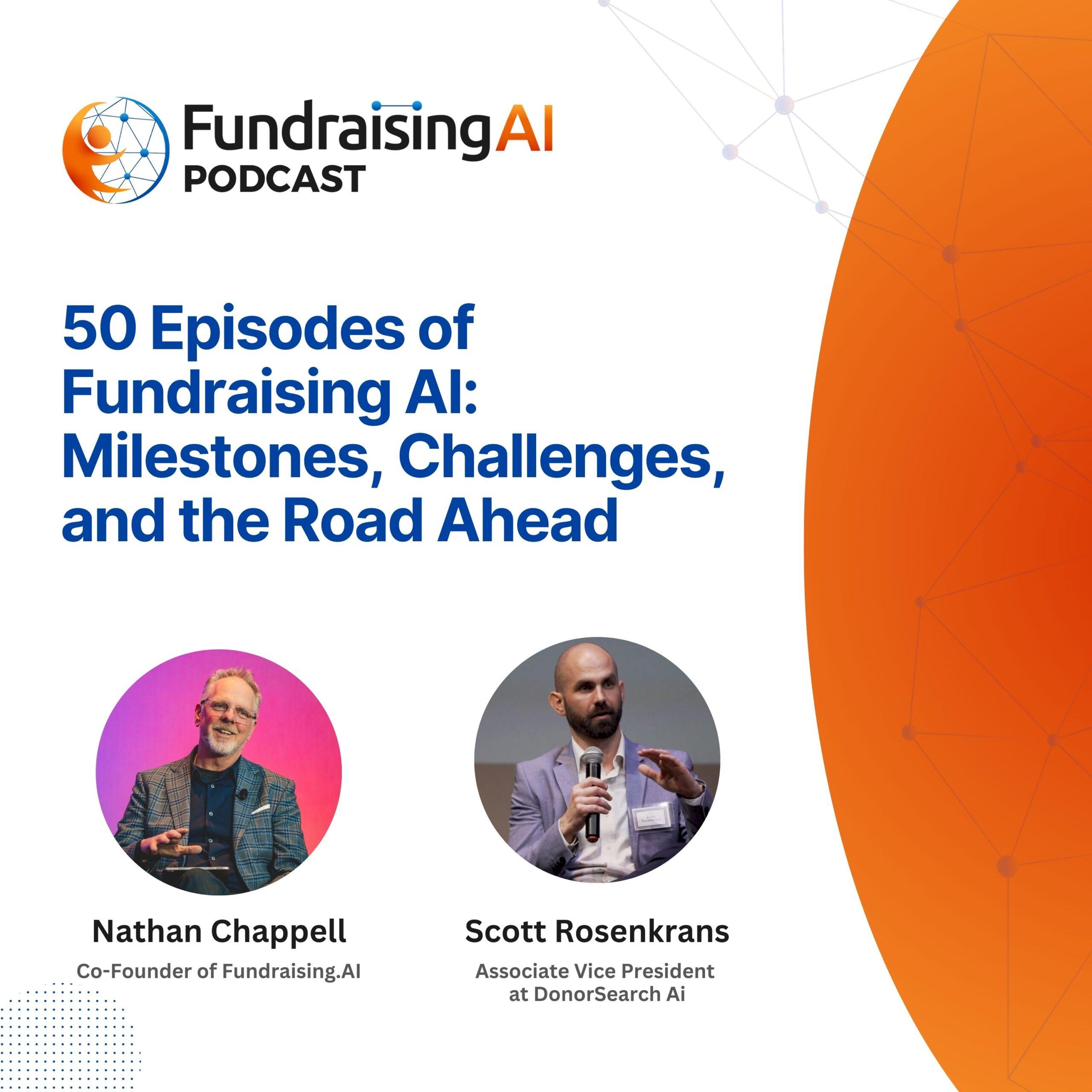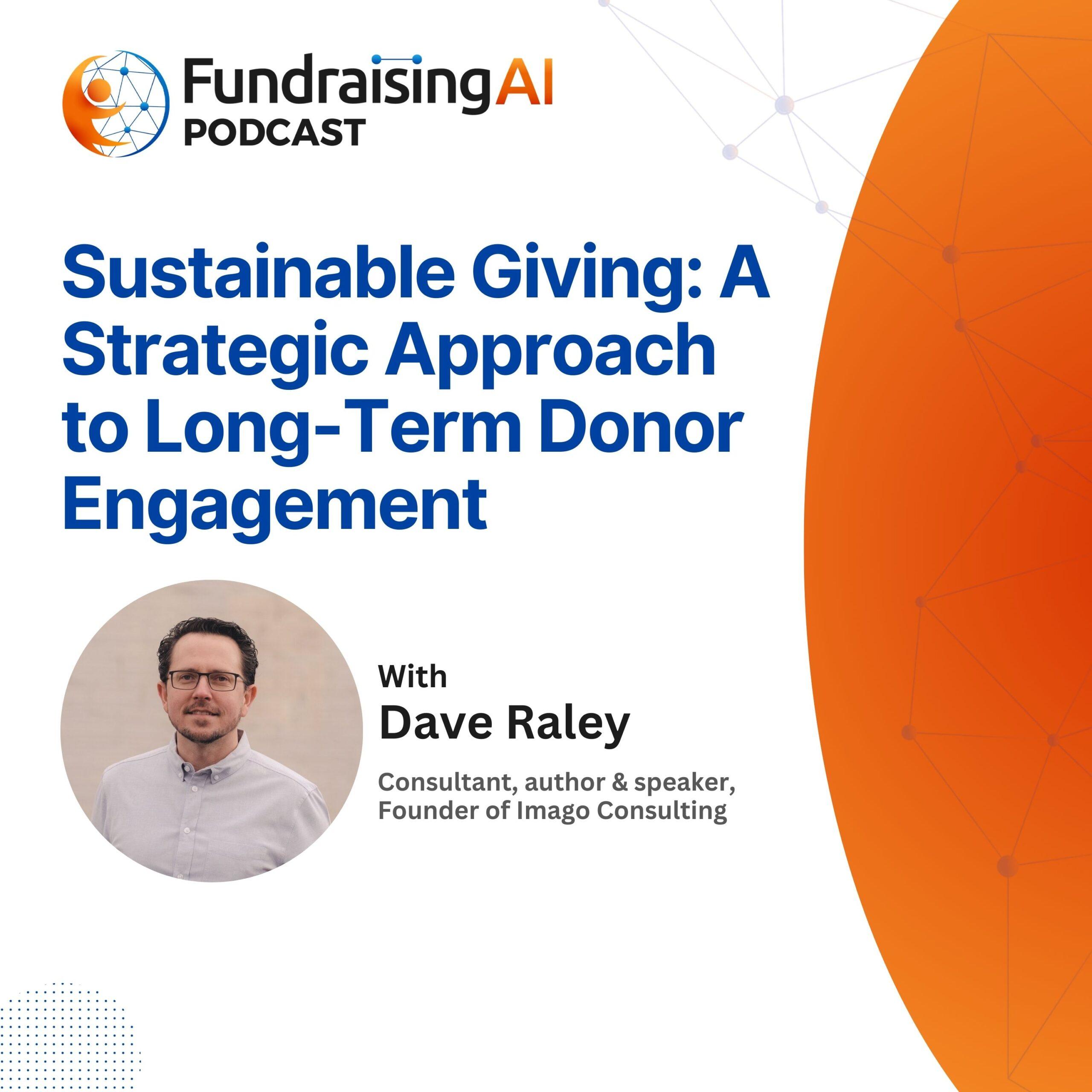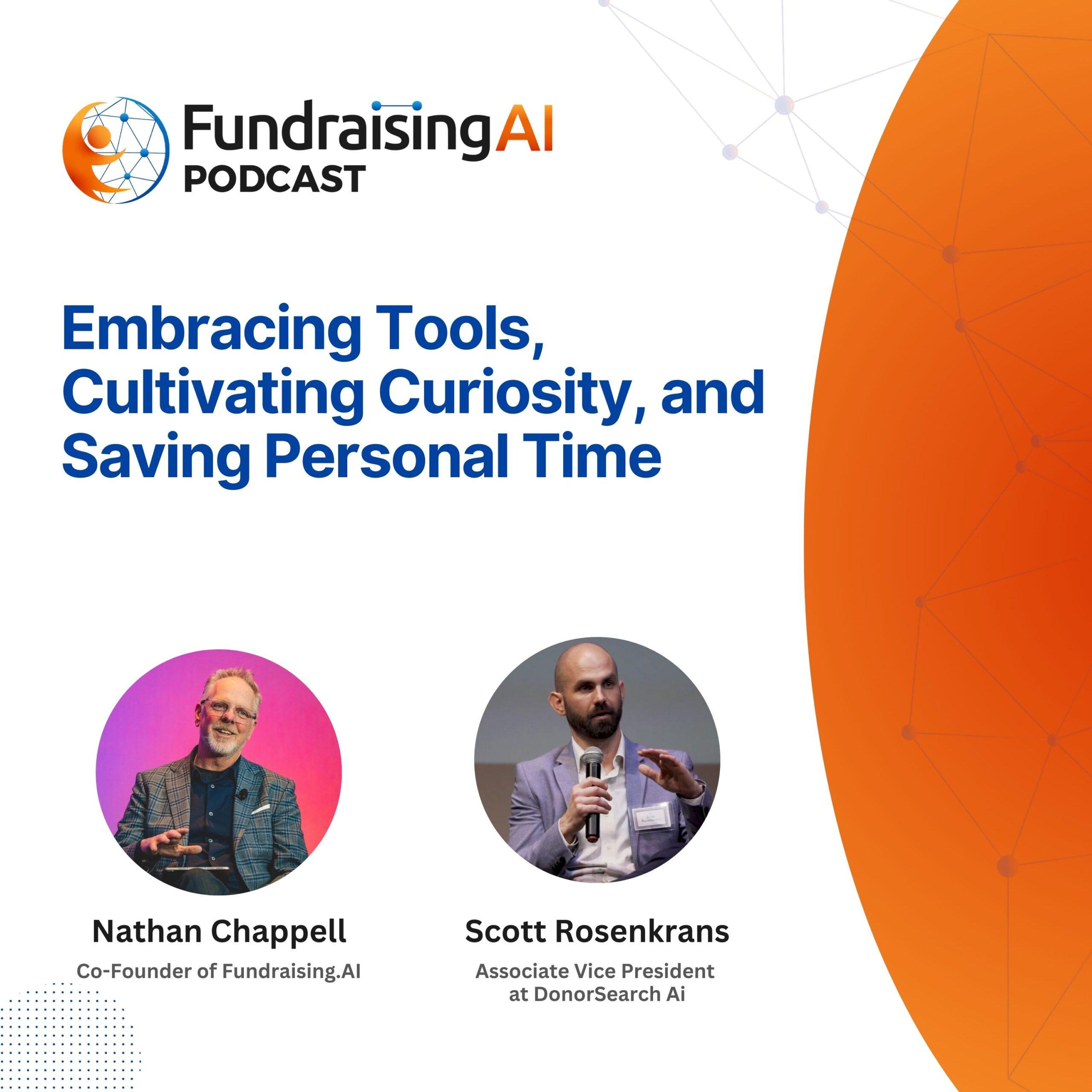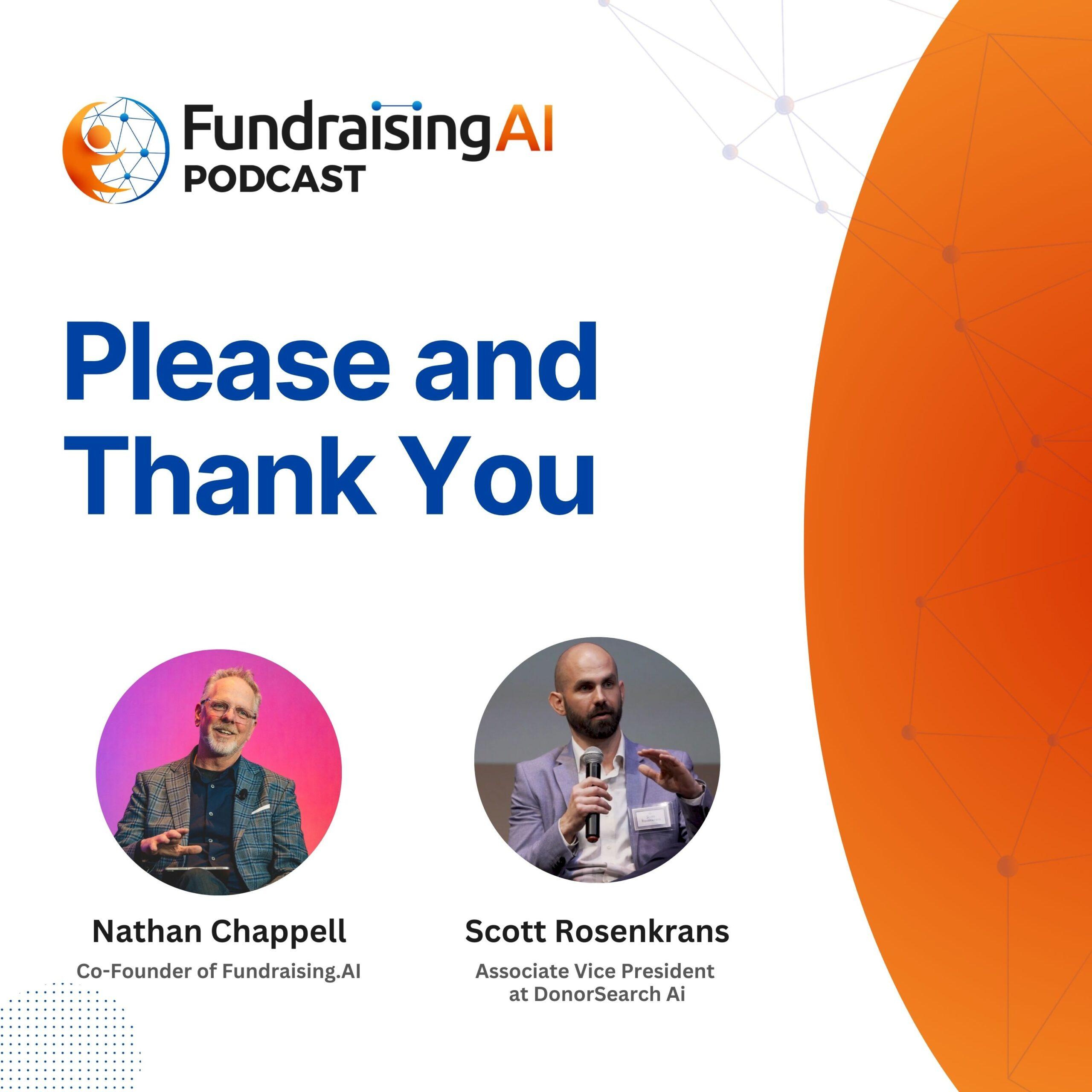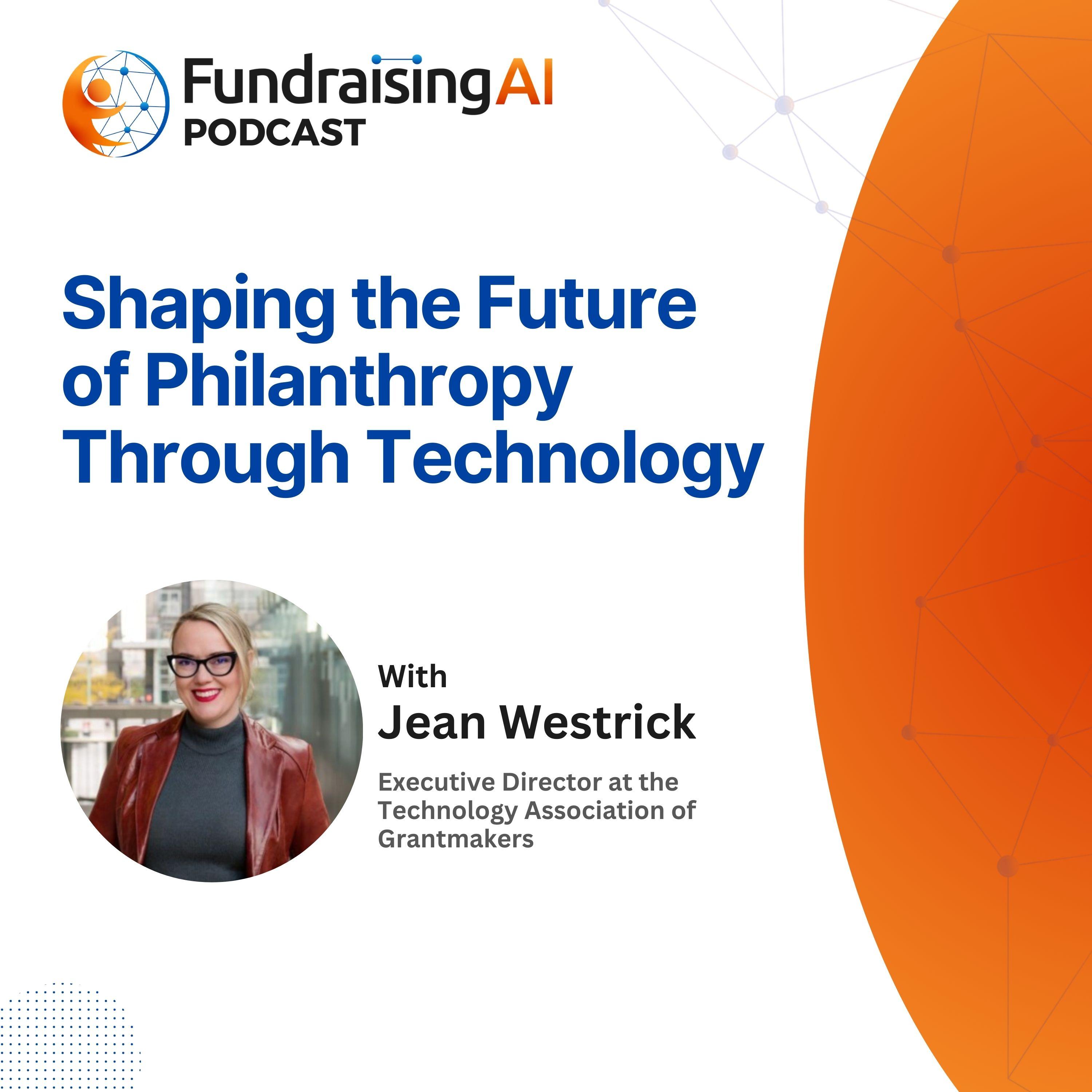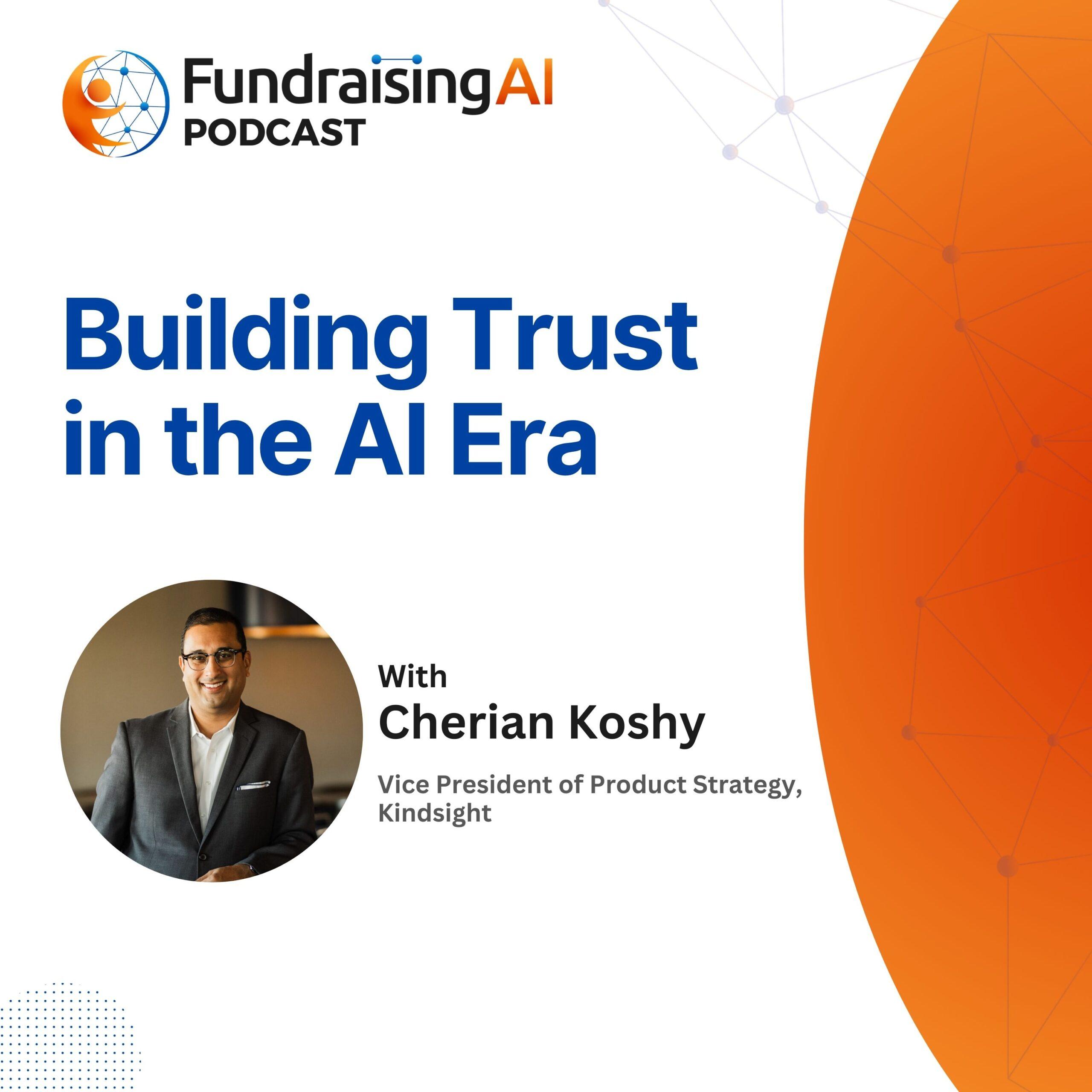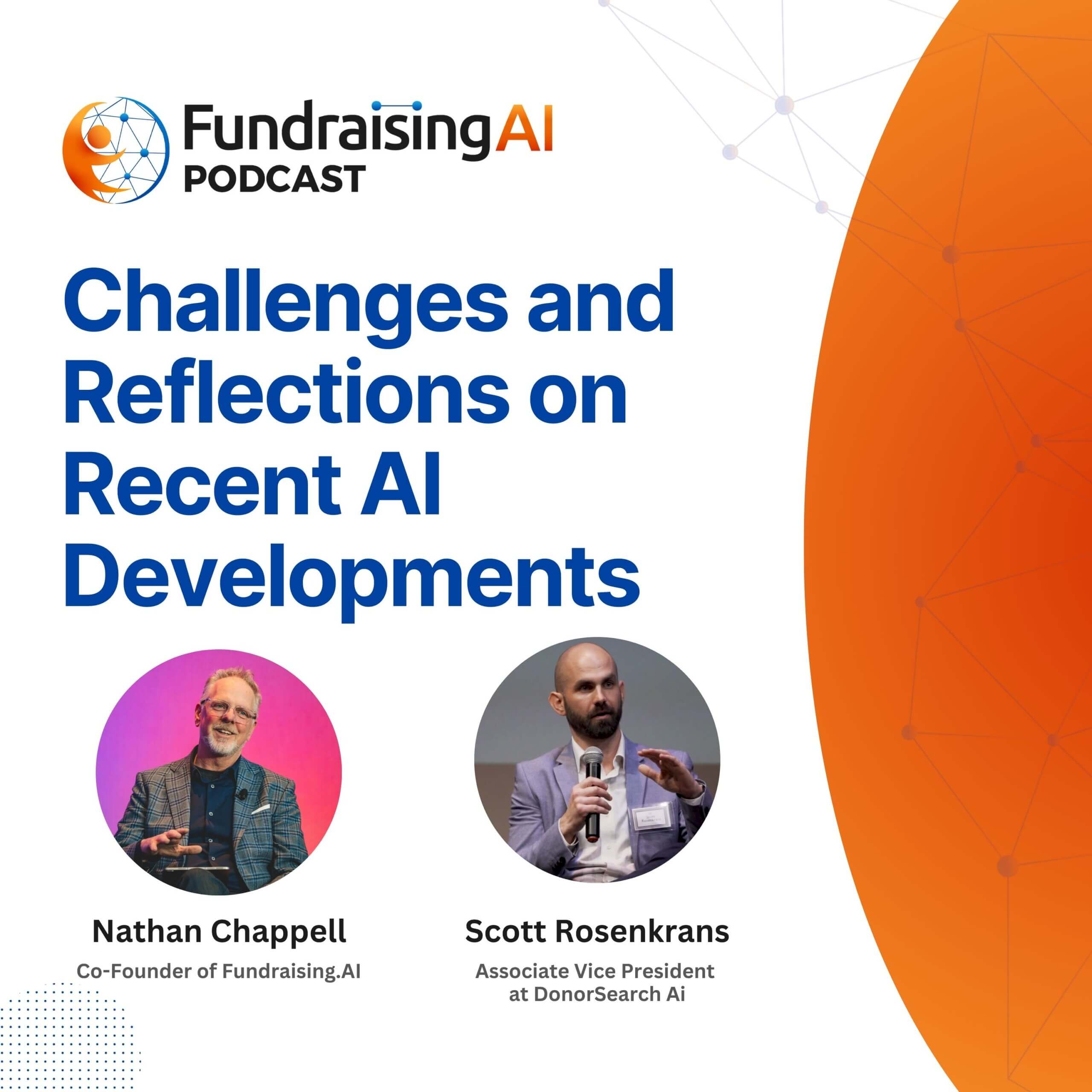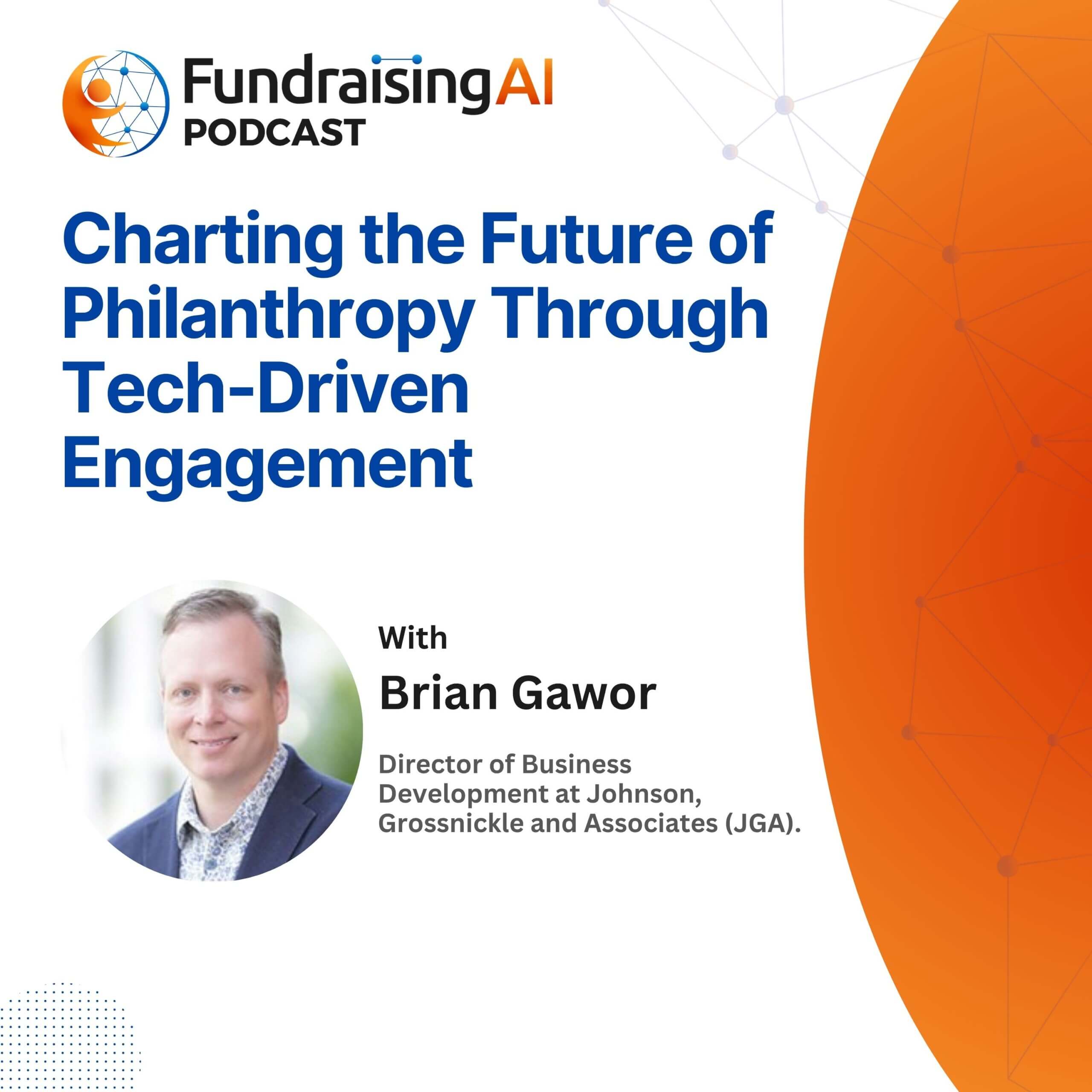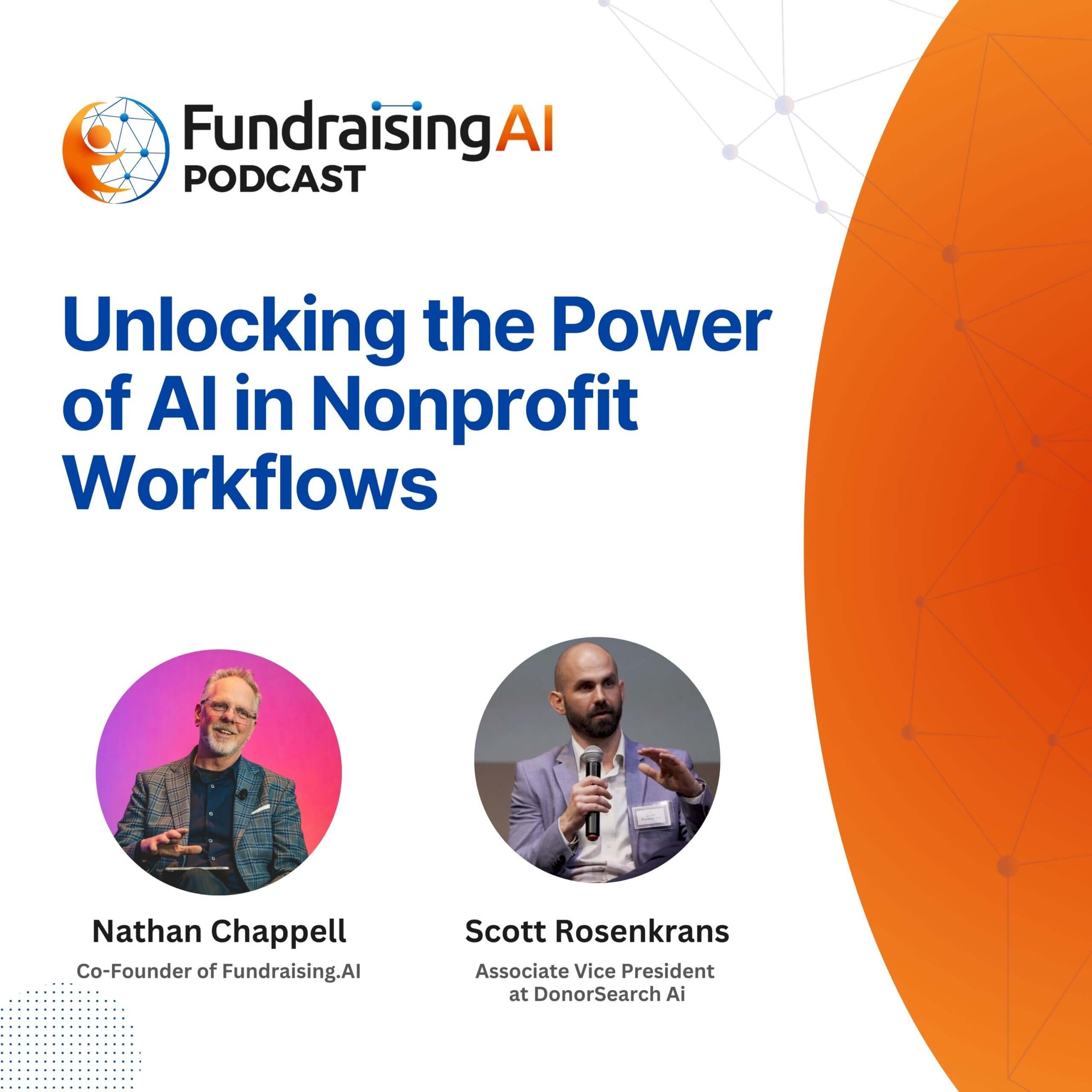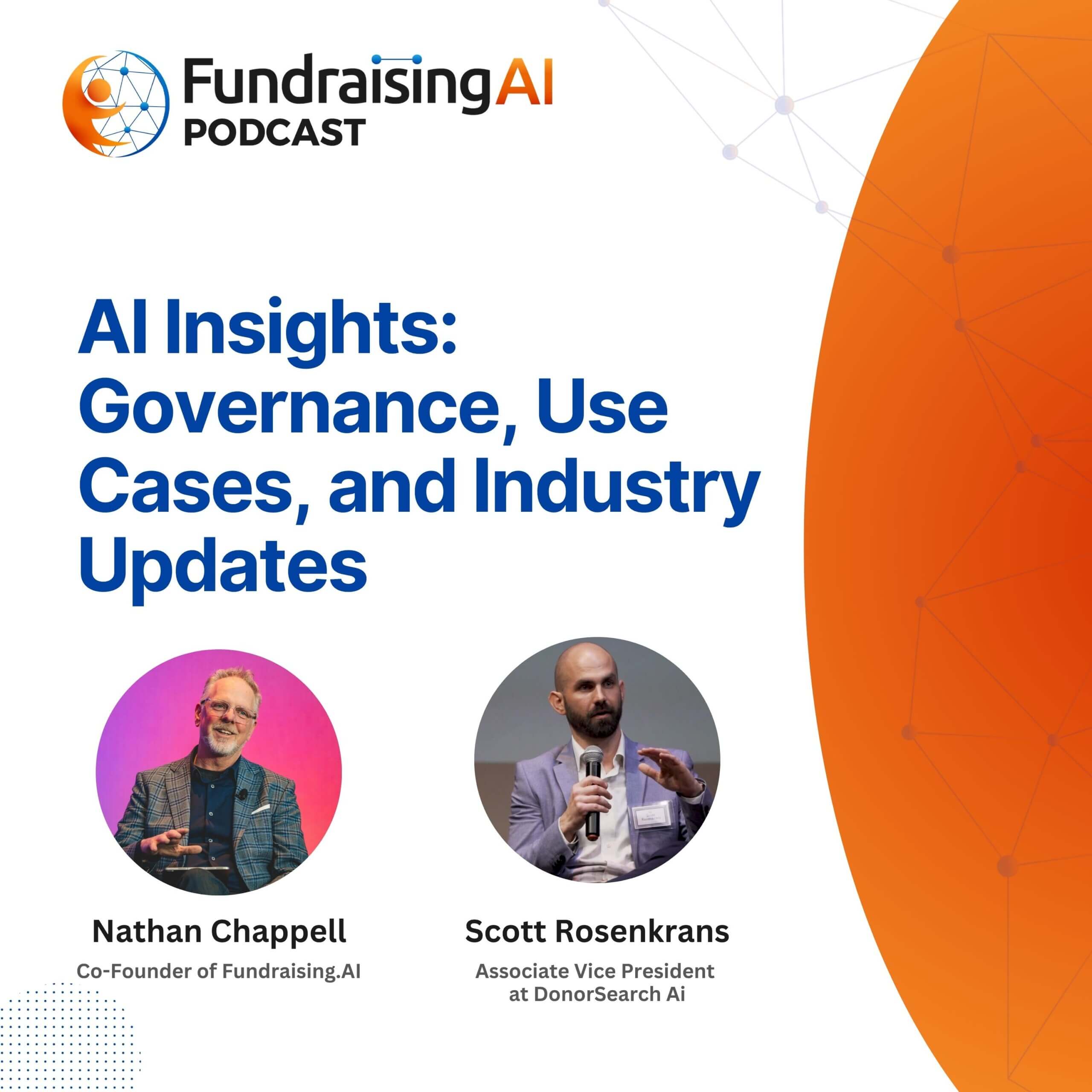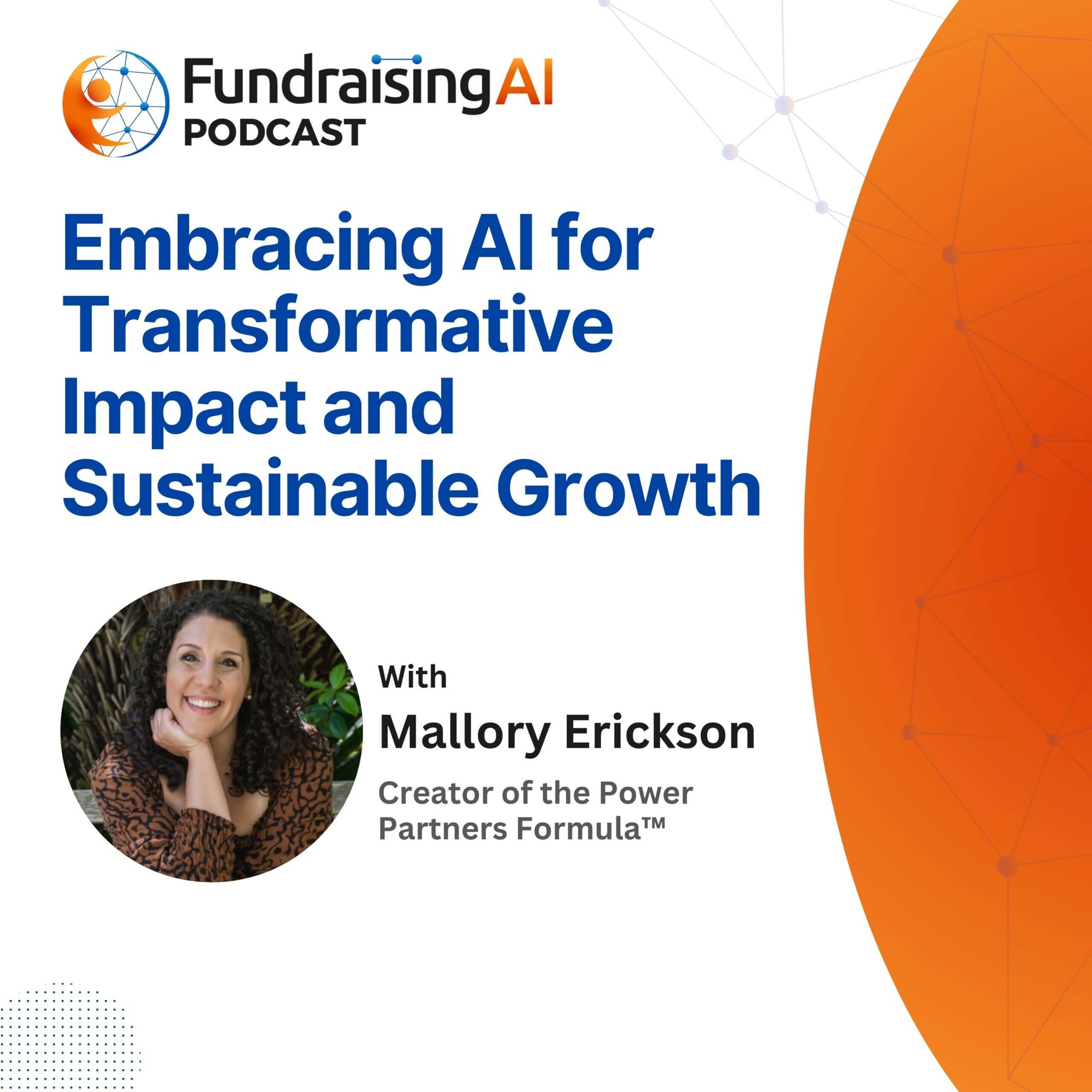Fundraising.AI
Episode 56
Episode 56 - The Role of Leadership And Governance In Building Trust In AI
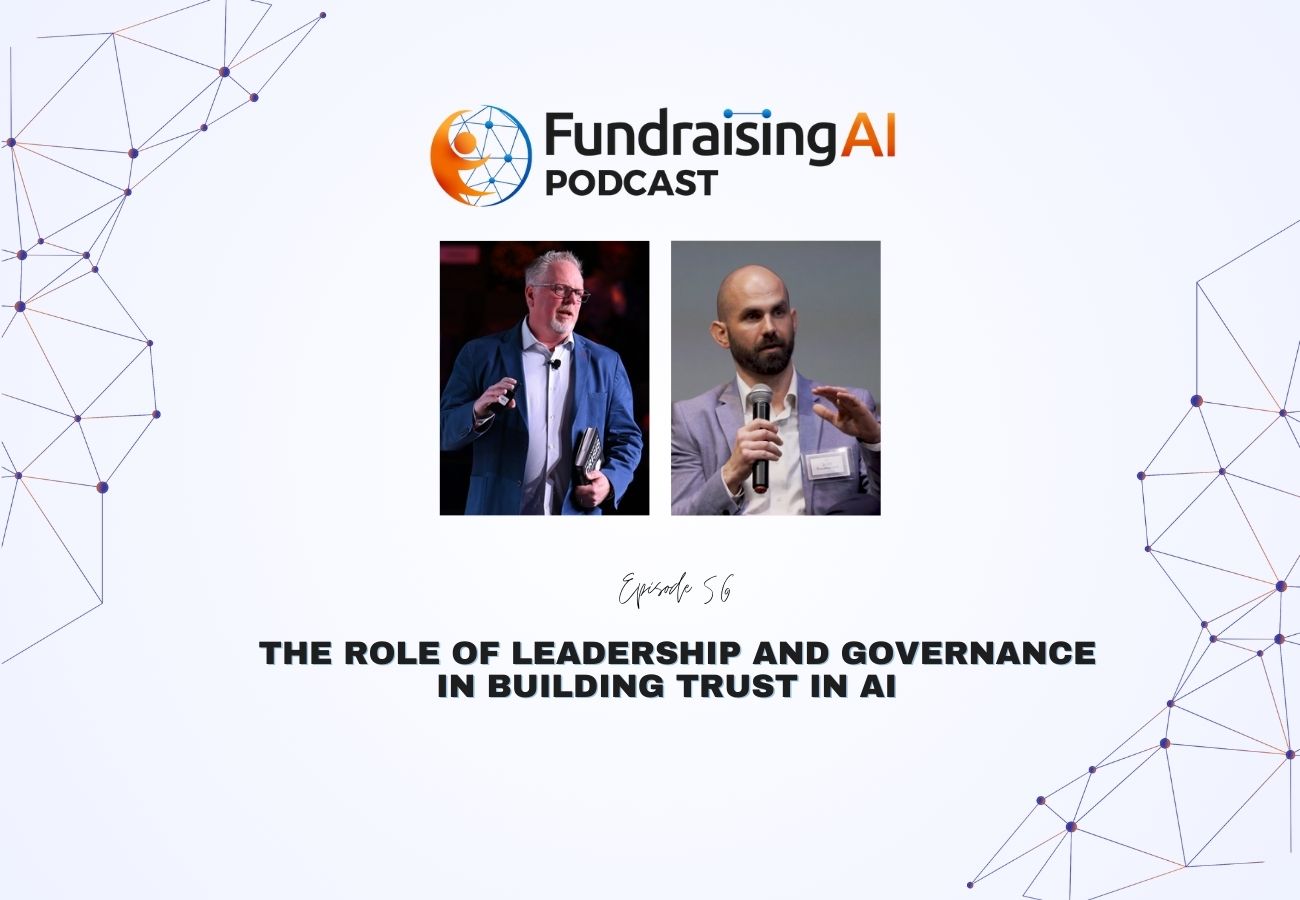
THIS EPISODE IS SPONSORED BY
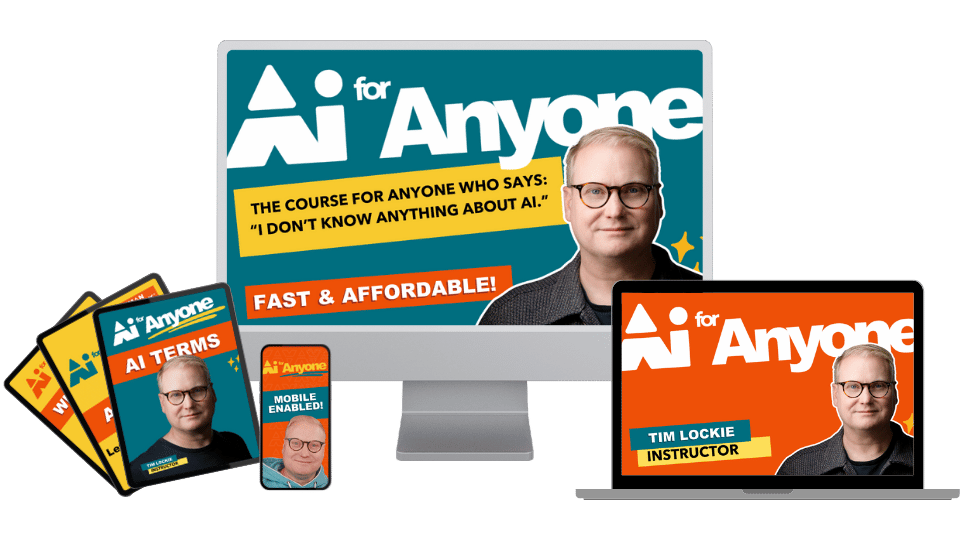
WATCH ON YOUTUBE

Listen To The Episode
OVERVIEW
AI continues to offer incredible opportunities to innovate and improve efficiency, making the way to transform how we live and work. While AI becomes more involved with our daily lives, it raises critical questions about responsibility, ethics, and governance. For a responsible AI adoption, you need not only to embrace the technology and its potential but also understand the risks and limitations that come with it. For a successful but responsible AI adoption, thoughtful leadership, clear boundaries, and continuous studying to ensure that AI is being fair and safe are much-needed requirements.
In this week’s episode, Nathan and Scott continue to share their thoughts on responsible AI adoption. They start the conversation by commenting on the book signing event they participated in for their new book, ‘Nonprofit AI.’ They also discuss the newest updates to ChatGPT and advise people to be aware of the personalities and persuasive abilities of modern AI models. Next, they explain the real harm AI can cause by walking us through the lawsuit involving Character AI. Furthermore, in the conversation, Nathan and Scott take time to go through the fourth chapter of their book, AI First Nonprofit: Reimagining Nonprofit Impact. Wrapping up this week’s episode, Nathan introduces the ponder of the week, where he questions what’s riskier between waiting to use AI until we have a full understanding of it or diving right in without understanding it at all. Scott contributes with the tip of the week, where he suggests using multi-perspective prompting to get better results from AI.


EPISODE HIGHLIGHTS
- [02:41] Nathan and Scott discuss their recent book signing event for their newly released “Nonprofit AI” book.
- [07:00] Personalities and persuasive abilities of AI models.
- [11:33] The lawsuit involving Character AI.
- [17:40] Enhancing productivity and innovation in the nonprofit sector.
- [19:30] Chapter Four of Nonprofit AI: AI First Nonprofit, Reimagining Nonprofit Impact.
- [22:34] AI as a strategic driver.
- [27:30] A solution-oriented approach for AI adoption.
- [31:02] Tip of the Week – Use multi-perspective prompting to get better AI results.
- [34:16] Ponder of the Week – What’s riskier? Waiting to use AI until we understand it, or using it without understanding at all?




TIPS AND TOOLS TO IMPLEMENT TODAY
- Be aware of the personalities and persuasive abilities of modern AI models.
- Embed ethics from the very beginning when developing AI.
- Design protections for vulnerable populations like children or emotionally sensitive users.
- Take responsibility as a whole. Not just credit when things go well.
- Use AI for efficiency, keep relational and emotionally sensitive roles human-led.
- Use multi-perspective prompting for better AI results.
- Leadership is accountable for setting the direction for responsible AI use.
ADDITIONAL RESOURCES
- Allie K MIller's Linkedin Learning AI Course
- ChatGPT4 accurately predicts human behavior in social experiments at 85%, across genders, races, and political affiliations.
- AI Adoption Is Driving Real Top - And Bottom-Line Impact For Enterprises (Gartner)
- Gen AI is hitting a trough of disillusionment (Gartner Hype Cycle)
- A new AI Pendant created to combat loneliness
- AI-first organizations
- More departures at OpenAI
- OpenAI's GPT-5 is coming out soon. Here's what to expect.



FAVORITE QUOTES
- “It's not the fact that we can be manipulated by models. It's the fact that we don't know when we're being manipulated by models.” – Nathan Chappell
- “We believe that the way to deploy AI and get to AGI at scale is to use humans as basically this living laboratory.” – Nathan Chappell
- “People can put out bots that are either responsible, irresponsible, or manipulated by design, and then lawyer up in huge ways to contest that they have no responsibility.” – Nathan Chappell
- “Use AI when it’s informational. But when it’s relational, keep that just to humans alone.” – Scott Rosenkrans
- “Users have to be aware of what models are doing, what the incentives are for those that are building the models, and essentially govern ourselves.” – Nathan Chappell
- “Using AI is not direct. There's no goal-oriented approach there. AI is the goal.” – Scott Rosenkrans
- “If a leader doesn't believe that there's AI governance, they will not endorse AI.” – Nathan Chappell
MEET YOUR HOSTS
Nathan Chappell
As a thought leader, public speaker, author and inventor, Nathan is one of the world’s foremost experts on the intersection between Artificial Intelligence and philanthropy. Nathan serves as Senior Vice President of DonorSearch AI, where he leads AI deployments for some of the nation’s largest nonprofit organizations. Nathan’s subject matter expertise has been featured in several publications, including Fast Company, University of Notre Dame and the Association of Healthcare Philanthropy. In 2021, Nathan founded Fundraising.Ai as a member-centric collaboration of nonprofit professionals with a focus on data ethics, data equality, privacy and security, sustainability. Nathan presented the first TEDx on the topic of artificial intelligence and the future of generosity in 2018. Nathan is a member of the Forbes Technology Council and holds a Masters in Nonprofit Administration from University of Notre Dame, an MBA from University of Redlands, a certificate in International Economics from University of Cambridge and a certificate in Artificial Intelligence from MIT.

Scott Rosenkrans
Scott Rosenkrans is the Assistant Vice President of DonorSearch Ai and has been with the organization for three years. He began his journey in the nonprofit sector twelve years ago as a prospect researcher. He quickly became fascinated with data as he noticed the organization that he previously worked for was amassing a wealth of information but was unsure how to efficiently use the data and resources to its full potential. This led him to become interested in predictive modeling and data analytics. During this time, he began to create an immense commitment to delivering tailor-made machine learning models to nonprofits.
The thing that Scott loves most about working for DonorSearch is the ability to prioritize what is best for the client and nonprofit sector above all else. He believes that growth is our most important core value because the DSAi team continuously evolves and brings a unique perspective that provides value to our clients. He stays ahead of industry trends because of his insatiable drive to constantly try out new things.
Favorite nonprofit: Shriner’s Children Hospital because of their extreme commitment to providing exceptional medical care, while also alleviating the financial burdens on families.
